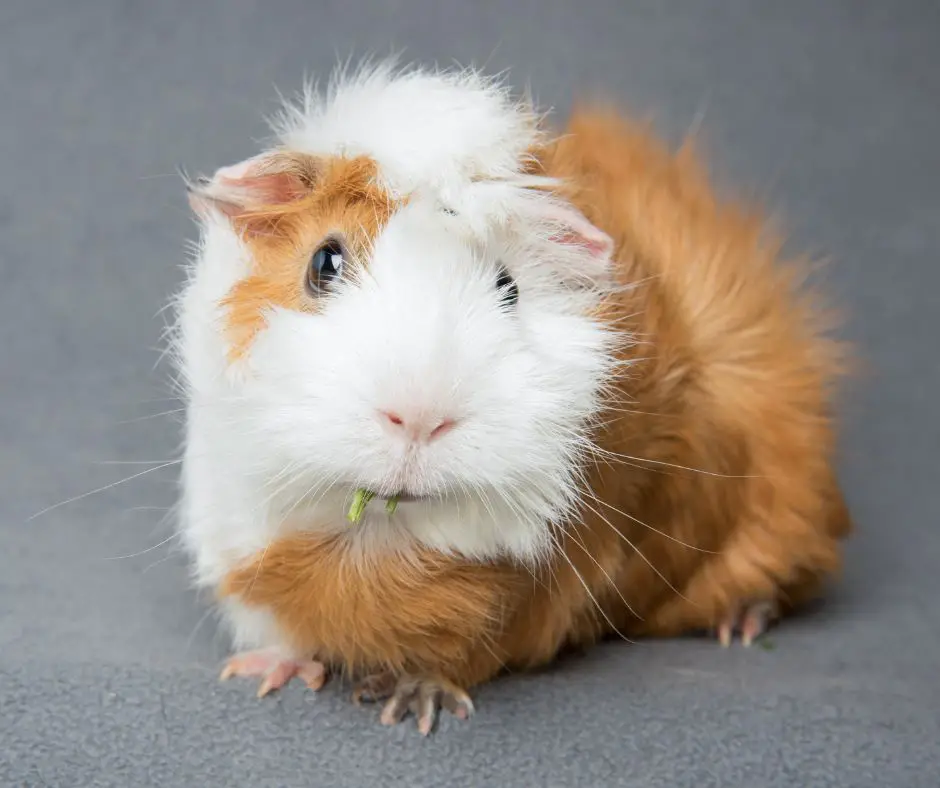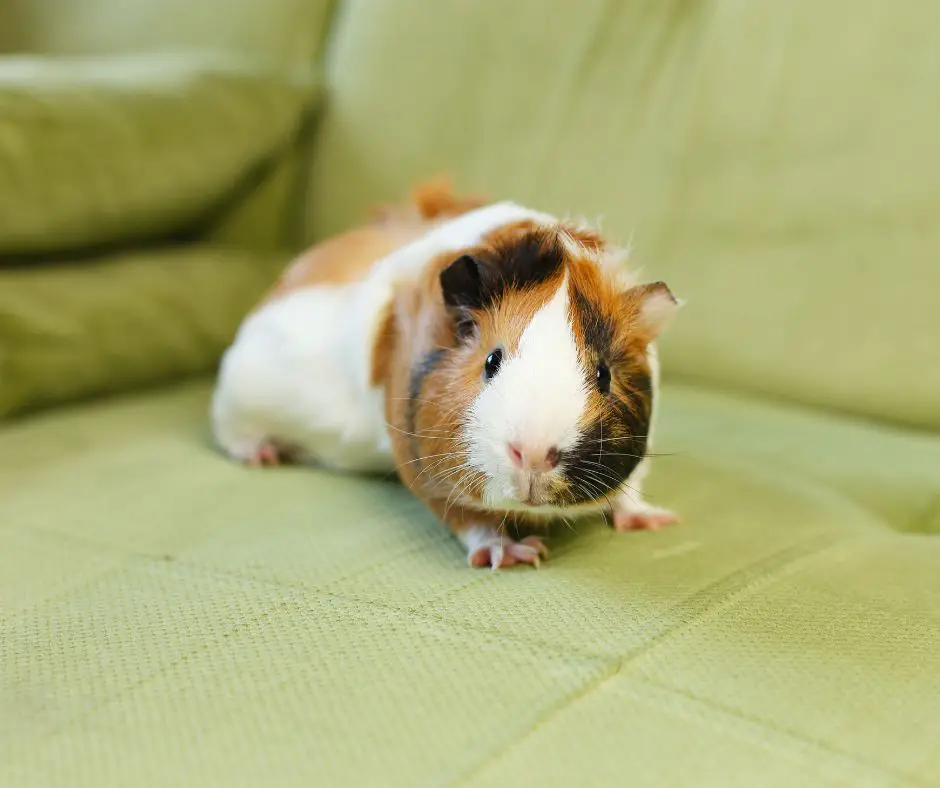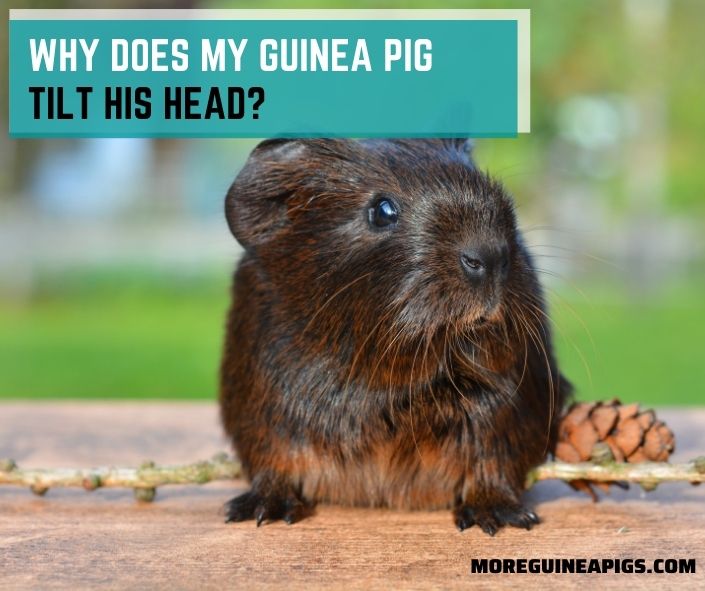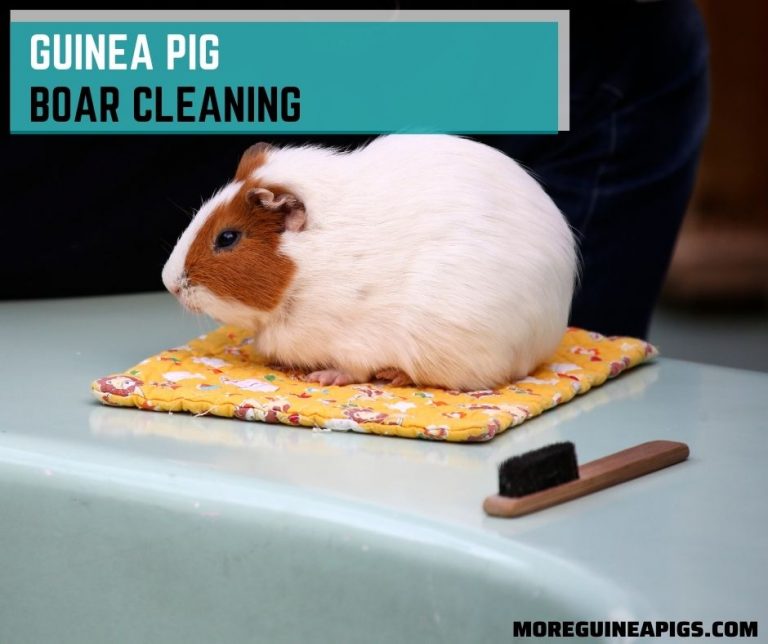Why Does My Guinea Pig Tilt His Head?
Guinea pigs are unable to communicate with their owners about any problems or illnesses they are experiencing. They engage in a variety of suspicious behaviors and activities.
Pet parents are responsible for recognizing the indications and determining the underlying problem or sickness, such as Why Does My Guinea Pig Tilt His Head?
The signs and symptoms that an animal displays are used to treat and diagnose diseases in animals, including guinea pigs. The signs of diseases or illnesses in guinea pigs are specific and unique.
It will be much easier to handle and treat a guinea pig’s illness if pet parents are aware of the signs and symptoms of common guinea pig illnesses.
The purpose of this article is to inform readers on the cause and effects of guinea pig head tilting.
The information in this article will also educate you on how to prevent and treat guinea pig head tilt. So, read the entire article to learn how to handle a situation like this with your guinea pig.
Why Does My Guinea Pig Tilt His Head?

Guinea pigs tilt their head due to severe infections in the middle or inner ear. However, this is less common in domesticated guinea pigs.
Guinea pigs are vulnerable to parasite or mite infestations. The mite can infect the external ear, especially the ear pinna, causing irritation and infestation.
If an infection in the external ear is not treated, it can migrate to the middle and inner ear, causing head tilting in guinea pigs.
Head tilt is technically known as torticollis. The term “wry neck” is a medical term for a head tilt. It is vital to visit a veterinarian if you notice a guinea pig tilting his or her head.
Guinea pigs with chronic respiratory illnesses may also tilt their heads. Hearing and breathing are linked via sensory nerves. When respiratory infections are left untreated, they can cause inflammation of the inner ear and auditory canal.
A Symptom of Serious Ear Infection
The growth of bacteria and mites in the cage is aided by unsanitary surroundings. These mites can cause external ear infections, which can spread to the inner ear if left untreated.
A middle or inner ear infection is indicated by the discharge of pus and a foul odor from the ear canal.
Other symptoms of ear infection include loss of hearing, circling, confusion, and loss of balance. Because serious ear infections cannot be treated at home, it is vital to see a veterinarian right away.
To confirm the diagnosis and determine the type of infectious agent, a veterinarian will do blood tests and examine ear pus.
Also read: Guinea Pig Ear Infection: Signs, Cause, and Treatment
Brain Parasite: E. Cuniculi
E. Cuniculi is a brain parasite that causes encephalitis or inflammation of the brain. The parasite can survive for a long period in the urine and transmit to other guinea pigs when they come into touch with it, that is ingested or inhaled, or from the mother to the baby while pregnant
E. Cuniculi causes urinary tract infections and frequently affects the kidneys, preventing complete blood filtration.
The E. Cuniculi enters the brain through the ear canal. It begins to proliferate and damage brain tissues once it penetrates the brain.
The pathogen E. Cuniculi causes swelling and inflammation in the brain tissues that compel the guinea pig to tilt the head. A guinea pig infected with E. Cuniculi will have a tilted head, be dehydrated, and have a low body temperature.
The common signs include circling, nervousness, head tilting, confusion, loss of balance, over-opened eyes, and frequent urination.
A visit to the veterinarian is required to confirm the diagnosis. He or she will conduct blood and urine tests to confirm the parasite’s presence.
J·R·LIGGETT’S Small Animal Liquid Shampoo
Signs of Less Common Diseases
Some diseases are less common in guinea pigs such as a tumor, muscle spasms, and cardiovascular diseases. A tumor is a protrusion that results from the proliferation of cancerous cells in a particular location.
Tumors are divided into benign and malignant types. They can grow behind the eyes and compel the guinea pig.
Muscle spasms in guinea pigs are also uncommon. Muscle spasms are the twitching and cramping of muscles caused by pain.
Muscle spasms in the neck or face muscles also cause head tilting in guinea pigs. Muscle spasms might be caused by an overabundance of mites, neurological issues, or seizures.
Cardiovascular illnesses affect guinea pigs; however, they are less common. Guinea pigs are herbivores, which means they eat plants, grass, and vegetables.
This diet keeps cholesterol and fat from accumulating in blood vessels. Sometimes, blockage of coronary arteries and brain vessels causes confusion, loss of balance, and head tilting.
Guinea pigs are less likely to get ear mites, but pets living in dirty environments and contaminated cages are at risk.
Redness around the ear, itching, hair loss, head tilting, and inflammation of the ear pinna are all symptoms of ear infections. To keep ear mites at bay, keep the cage clean and disinfected regularly.
Also read: Guinea Pig Mites: Signs, Causes, and Treatment
How Do You Treat Head Tilt in Guinea Pigs?
The infection in the inner or middle ear causes the guinea pig’s head to tilt. It can be treated, but recovery takes a long time.
Antibiotics and analgesics are recommended by veterinarians for treating ear infections. The guinea pig’s hearing may be affected if the infection progresses to the auditory canal.
Long-term administration of oral antibiotics can prevent illness from spreading to the brain, but guinea pigs’ hearing capacity cannot be restored.
Vets recommend enrofloxacin to treat tilted heads. Penicillin, amoxicillin, gentamicin, and ciprofloxacin are examples of antibiotics that might cause serious problems and side effects.
Homemade therapies are ineffective in treating guinea pig head tilt. A thorough inspection of the pet by a veterinarian is required.
The cause of head tilting will be determined by the veterinarian. He or she will prescribe medicines to treat it if it is caused by a chronic respiratory condition. And if it’s related to an ear infection or a nervous disorder, he’ll prescribe the appropriate medication.
Prevention Guinea Pig Head Tilt

Although guinea pig head tilt is unavoidable, the sickness that causes it can be prevented. Ear infections and respiratory illnesses like pneumonia are the most common causes of guinea pig head tilt. Some other causes include recent head trauma, toxin ingestion or brain tumor.
You can take steps to prevent ear infections, which can be devastating if they spread to the brain tissues.
Bacterial and parasite illnesses are spread via unsanitary conditions and dirty cages. Infectious bacteria thrive in the presence of feces, poor bedding materials, moisture in the cage, and high ammonia levels in the litter.
The cages must be cleaned and washed regularly. Replace the litter and clean the cage and feeding apparatus.
Apart from that, guinea pigs must be groomed on a regular basis to avoid bacteria and mites from growing and multiplying. So, the preventive measure can reduce the risk of ear infections and head tilt.
Also read: The Complete Guide about Guinea Pig Grooming
carefresh 99% Dust-Free Natural Paper Small Pet Bedding with Odor Control
Conclusion
Infected cage mates or polluted and unclean environments can cause infections in Guinea pigs. They suffer ear infections as a result of bacteria proliferating in the inner ear, which causes guinea pig head tilt.
Guinea pigs tilt their heads to the infected ear because pus production can be annoying and uncomfortable, so they tilt their heads to discharge pus.
It is necessary to consult a vet before the ear infection gets transferred to the middle or inner ear. Because once the infection has spread to your pet’s inner ear, he or she will tilt his or her head and it will be tough to fully recover.
Depending on the severity of the infection, the veterinarian may prescribe oral antibiotics or ear drops, such as enrofloxacin.
Ear infection can easily be prevented by taking precautionary measures. To avoid bacterial infection, it is critical to maintain a sanitary environment.
Once a week, clean the cage and change the litter. Aside from that, make sure the cage is well ventilated and that your pet is groomed on a regular basis.







